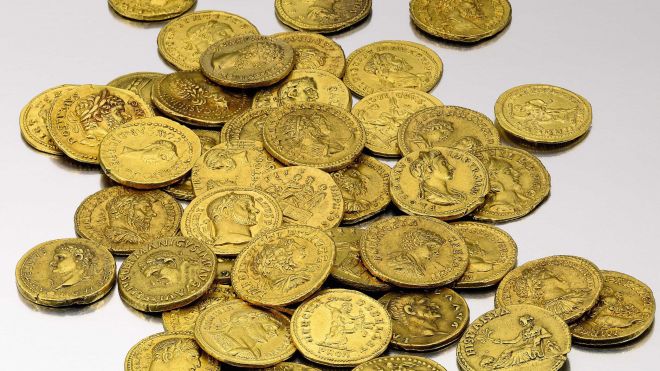
Rare Spanish coins dating back to the ancient world will be going on the auction block.
Sotheby’s announced Thursday that it is selling 37,895 of the rare coins on behalf of the New York City-based Hispanic Society of America. The society’s founder amassed the collection more than 100 years ago.
The Hispanic Society of America, founded in 1904, is a museum of Spanish and Latin America history. It holds art, rare books and, manuscripts and artifacts. The museum contains works by Diego Velásquez, Francisco de Goya and El Grego – and it has the first edition of Don Quijote.
The coins are expected to raise between $25 million to $35 million for the society. The money will be used for future acquisitions and care of the current collection.
According to the New York Times, the society is going through financial hardships after seeing its endowments shrink.
“We’ve not had, historically, an acquisition fund for museum collection,” Mitchell A Codding, the executive director, told the Times. “This will now give us a significant fund.”
The collection includes 50 massive gold coins called Excelentes struck under Ferdinand and Isabella, during the period of Christopher Columbus’ expeditions.
Other coins date from the Roman Empire and from the era before Rome when a number of cultures including Celts and Phoenicians inhabited what is now Spain. The Islamic period after the year 711 is also represented.
The coins are being sold as one lot in a sealed bid auction ending March 8.
Original article on FoxNews.com






